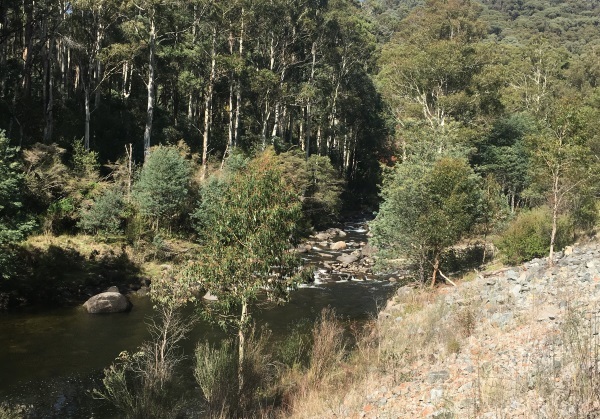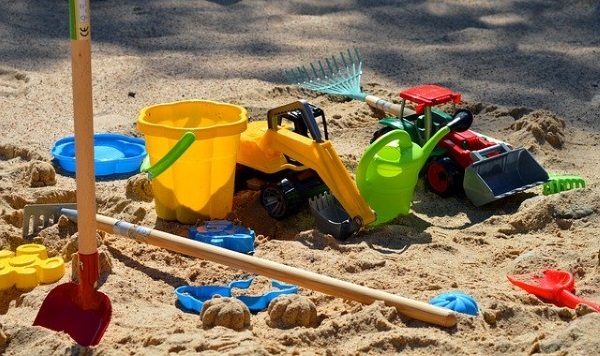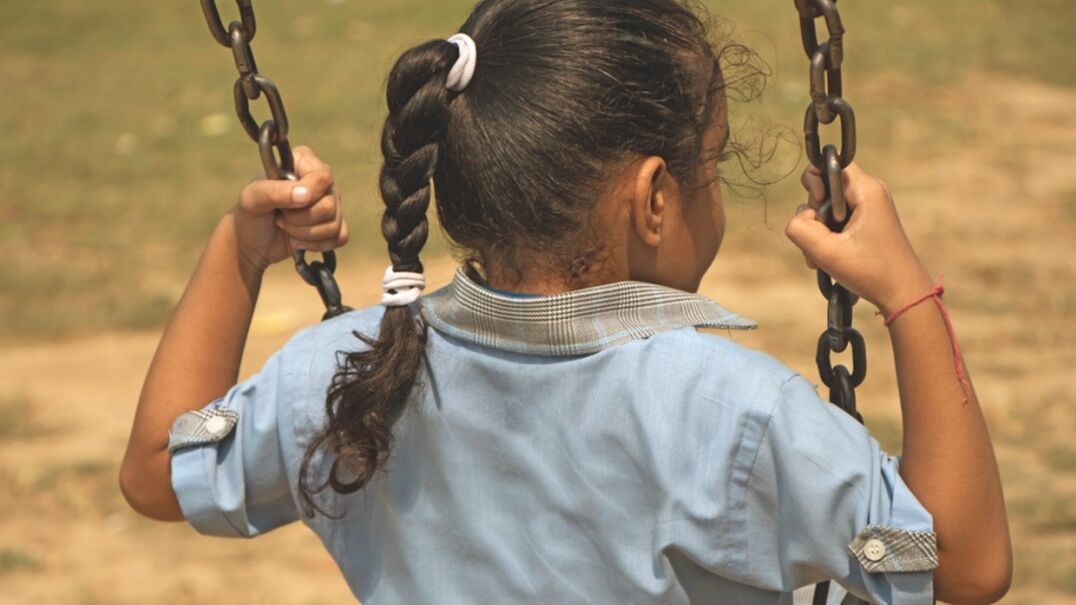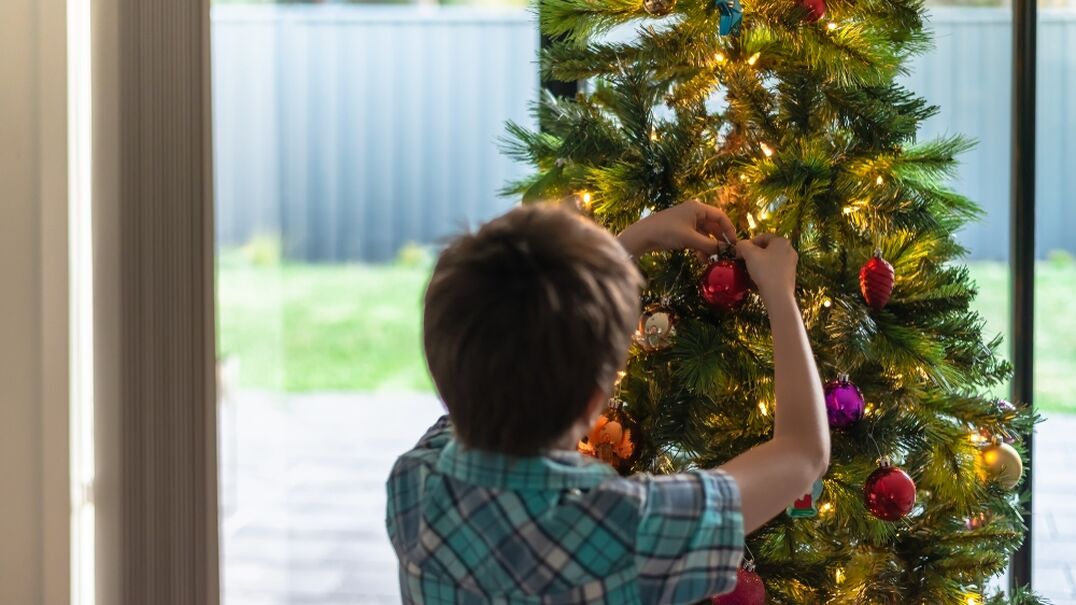“Heeeeey, Rob… I, I, I a Abbb-or-ig-in-oool!” he says proudly.
And off he runs again. A few moments later he’s back with a soft toy.
“And it,” he says pointing at his soft cuddly animal, “it, it my t… t… – who it Mum?”
“Totem mate,” says Anna softly, smiling at him.
“Yeah, it my toeeee-tum.” He grins and off he runs again to get his new gumboots to show Robyn, his Take Two clinician on the Zoom video call.
Cam* is about to turn 4 years old and is full of beans. Anna is his foster parent, but both Cam and his little brother Ezra call her Mum.
Cam’s speech isn’t as clear as it should be at his age, but it’s improved a lot since he and his 2-year-old brother came into Anna’s care 18 months ago.
The boys are the third generation to be removed from the care of their parents by Child Protection. The boy’s mum lived in out-of-home care during her young adolescence and self-medicated with alcohol and drugs while in a violent relationship with the boys’ dad, who also has a history of Child Protection involvement. Despite this, both maternal and paternal extended families have been able to remain connected with each other.
Both the boys were born premature and spent months in hospital. Ezra needed medical help to withdraw from the drugs he was exposed to in utero.
Anna is an Aboriginal woman. She’s passionate about making sure the boys understand and know lots about their Country and their Community. Every day she takes the boys on a bushwalk, and together they look at the plants and try and spot animals. They often visit a swimming hole that Anna feels particularly connected to.

Community making decisions about their mob
The boys are two of the first children in Victoria to have their care and protection orders moved from the Department of Health and Human Services to an Aboriginal Community Controlled Organisation (ACCO) under the Victorian Aboriginal Child Placement Principle under Section 18 of the Children, Youth and Families Act 2005. This means that their local Community, led by the their local ACCO make decisions about the boys and their care.
Robyn says the ACCO have done a huge amount of work setting up a program to promote the safety, stability and development of children within Community.
When the boys transitioned over to ACCO, agencies already working with the brothers also made a commitment to the ACCO and the boys.
Helping the healing
Berry Street’s Take Two service has been supporting the ACCO with therapeutic healing work for the boys. Take Two have provided specialised paediatric trauma-specific speech and language assessments by our Speech Pathologist, sensory processing assessments and support from our Occupational Therapist, and they are soon to receive Neuropsychology assessments.
These consultations have been coordinated through their Take Two clinician, Robyn. She’s also been providing Child Parent Psychotherapy support to enable Anna to care for the boys and help them feel safe with her. She’s helping Anna create developmentally appropriate narratives about their parents; including that ‘Mummy and Daddy love you, but they were taking bad medicine that made them scary.’
Welcoming wellbeing
The results are slow, but the benefits are showing.
The boys are catching up on the developmental milestones they were severely lagging on. Cam loves swinging on his nest swing recommended by the Take Two Occupational Therapist. The Occupational Therapist also recommended chew toys and balance boards for the boys, all of which have been funded by Child Protection and purchased by Anglicare, the third party in the care team. These sensory tools help Cam calm his body, and his emotions, before he gets too worked up, avoiding most of the hysterical tantrums he can’t calm down from.
While Cam has noticeable speech difficulties, his language has dramatically improved since his speech assessment consultation. Ezra can only say a couple of words. There’s concern his hearing is very limited, so he’s getting grommets put in soon to see if that helps. But he’s started walking and has an infectious smile.
Both boys are now linked in with the Wadja Health Clinic at the Royal Children’s Hospital. The clinic is a general medical outpatient clinic for Aboriginal and Torres Strait Islander children and provides medical, social, cultural and emotional assessment. Anglicare organises care team meetings so the Wadja clinic, the children’s ACCO paediatrician, Take Two and other professionals involved with the children can communicate and co-ordinate their care.
Building cultural connections
Both boys have had a ‘Welcome Baby to Country’ ceremony. Both received a possum skin which they treasure. Anna regularly takes them to cultural events, and they have spent time on both their mum and their dad’s Country. She’s teaching them about their totems, their mobs and being proud to be Aboriginal.
She’s made a huge effort to ensure they are connected to their maternal extended family who also live nearby. Pre-COVID the boys were attending playgroup with their cousins and aunties, who say they are looking forward to having the boys come for sleepovers in the future. Their family have a long and trusting relationship with their ACCO, and now with Anna also.

It’s early days but the ACCO is offering supports to both parents, whilst Take Two offer trauma-informed therapy to the boys with their carer.
“We know the boys’ mum and dad, grandparents and aunties,” Robyn says, “all did the best they could caring for their boys given their own experiences of intergenerational trauma and lack of access to timely and culturally safe services. The care team are all working together with the shared long-term goal of supporting the boys to enjoy safe, regular and consistent contact with both parents and maternal and paternal families.”
Seeing deadly results
Robyn is excited to see the boys doing so well under ACCO-led guardianship and Anna’s care.
“Anna is doing an amazing job providing safety, connection with their extended families, their mobs, Country and their culture in addition to providing them the affection and cuddles that all kids crave and need to feel like they are worthy and loved.”
“I’ve learnt so much from Anna, the boys, Kim [from Take Two’s Aboriginal Team] and the ACCO about the primary importance of connection to family, culture, Country in offering healing. Many of the therapeutic outcomes Take Two wishes for children, such as; a strong sense of identity, of belonging, positive self-esteem, capacity to calm down and sooth ones emotions, self-efficacy and hope for the future to name a few are offered and enhanced by an Aboriginal child’s connection to family, culture and Country. As a non-Aboriginal person, the specialist cultural consultations provided to me by Kim from the Take Two Aboriginal Team are incredibly useful.”
Robyn says she’s proud to be involved with the boys and to be working with the ACCO and the other agencies.
“It’s a no brainer for Take Two to support ACCOs and principles of Aboriginal self-determination. It’s definitely what’s best for these kids. It’s a joy to see the heavy cloud beginning to lift off these two cheeky little boys.”
*The names of the children and their carer have been changed to protect their identity.
Berry Street’s Take Two program is a Victoria-wide therapeutic service helping to address the impact on children of the trauma they have experienced from abuse, neglect or adverse experiences.
At Take Two we see who the child is, not just the behaviour. All babies, children and young people deserve to feel safe, loved and valued.
We use clinical frameworks, neurobiological research and evidence-informed approaches to repair family relationships and develop networks of caring adults that focus on what the child needs.
Take Two can provide specialist clinical consultancy services to other organisations. Contact us for more information.





